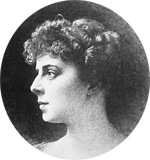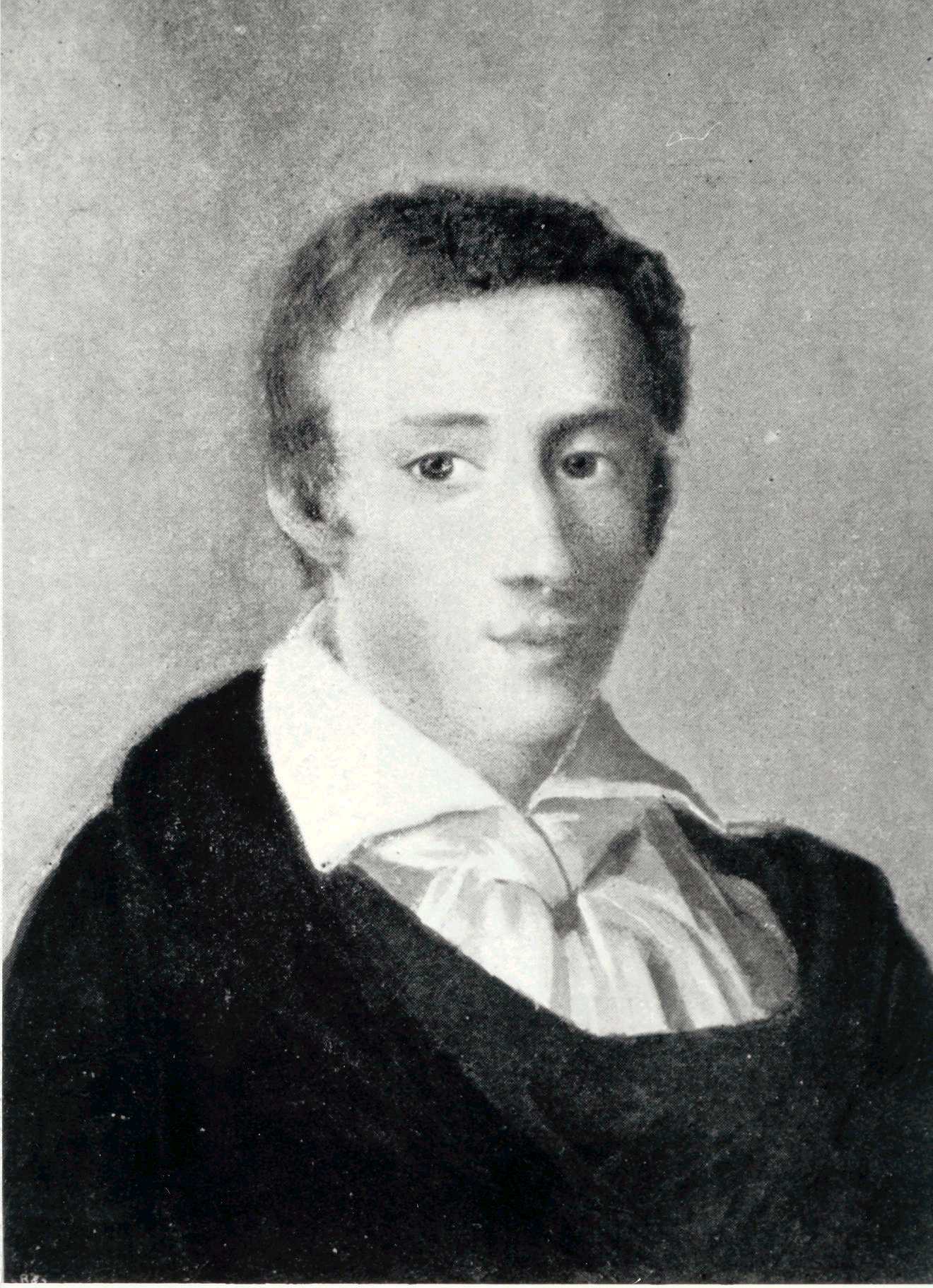|
Sébastien Érard
Sébastien Érard (; 5 April 1752 – 5 August 1831) was a French instrument maker who specialised in the production of pianos and harps, developing the capacities of both instruments and pioneering the modern piano. Biography Érard was born in Strasbourg. While a boy he showed great aptitude for practical geometry and architectural drawing, and in the workshop of his father, who was an upholsterer, he found opportunity for the early exercise of his mechanical ingenuity. When he was sixteen his father died, and he moved to Paris where he obtained employment with a harpsichord maker. Here his remarkable constructive skill, though it speedily excited the jealousy of his master and procured his dismissal, almost instantly attracted the notice of musicians and musical instrument makers of eminence. EB says he built his first pianoforte in 1780. Before he was twenty-five he set up in business for himself, his first workshop being a room in the hotel of the duchesse de Villeroi, wh ... [...More Info...] [...Related Items...] OR: [Wikipedia] [Google] [Baidu] |
Felix Mendelssohn
Jakob Ludwig Felix Mendelssohn Bartholdy (3 February 18094 November 1847), widely known as Felix Mendelssohn, was a German composer, pianist, organist and conductor of the early Romantic music, Romantic period. Mendelssohn's compositions include symphony, symphonies, concertos, piano music, organ music and chamber music. His best-known works include the Overture#Concert overture, overture and incidental music for ''A Midsummer Night's Dream (Mendelssohn), A Midsummer Night's Dream'' (which includes his "Wedding March (Mendelssohn), Wedding March"), the ''Symphony No. 4 (Mendelssohn), Italian'' and ''Symphony No. 3 (Mendelssohn), Scottish'' Symphonies, the oratorios ''St. Paul (oratorio), St. Paul'' and ''Elijah (oratorio), Elijah'', the ''The Hebrides (overture), Hebrides'' Overture, the mature Violin Concerto (Mendelssohn), Violin Concerto, the Octet (Mendelssohn), String Octet, and the melody used in the Christmas carol "Hark! The Herald Angels Sing". Mendelssohn's ''Songs W ... [...More Info...] [...Related Items...] OR: [Wikipedia] [Google] [Baidu] |
Franz Liszt
Franz Liszt (22 October 1811 – 31 July 1886) was a Hungarian composer, virtuoso pianist, conductor and teacher of the Romantic music, Romantic period. With a diverse List of compositions by Franz Liszt, body of work spanning more than six decades, he is considered to be one of the most prolific and influential composers of his era, and his piano works continue to be widely performed and recorded. Liszt achieved success as a concert pianist from an early age, and received lessons from the esteemed musicians Carl Czerny and Antonio Salieri. He gained further renown for his performances during tours of Europe in the 1830s and 1840s, developing a reputation for technical brilliance as well as physical attractiveness. In a phenomenon dubbed "Lisztomania", he rose to a degree of stardom and popularity among the public not experienced by the virtuosos who preceded him. During this period and into his later life, Liszt was a friend, musical promoter and benefactor to many composer ... [...More Info...] [...Related Items...] OR: [Wikipedia] [Google] [Baidu] |
Henri Herz
Henri Herz (6 January 1803 – 5 January 1888) was a virtuoso pianist, composer and piano manufacturer, Austrian by birth and French by nationality and domicile. He was a professor in the Paris Conservatoire for more than thirty years. Among his major works are eight piano concertos, a piano sonata, rondos, nocturnes, waltzes, marches, fantasias, and numerous sets of variations. Biography Herz was born Heinrich Herz in Vienna. He was Jewish by birth, but he asked the musical journalist François-Joseph Fétis not to mention this in the latter's musical encyclopaedia, perhaps a reflection of endemic antisemitism in nineteenth-century French cultural circles. As a child he studied with his father, and in Koblenz with the organist Daniel Hünten, father of the composer Franz Hünten. In 1816 Herz entered the Conservatoire de Paris, where he studied piano with Louis-Barthélémy Pradher, harmony with Victor Dourlen and composition with Anton Reicha. He won first prize in piano ... [...More Info...] [...Related Items...] OR: [Wikipedia] [Google] [Baidu] |
Joseph Haydn
Franz Joseph Haydn ( ; ; 31 March 173231 May 1809) was an Austrian composer of the Classical period (music), Classical period. He was instrumental in the development of chamber music such as the string quartet and piano trio. His contributions to musical form have led him to be called "Father of the Symphony" and "Father of the String quartet". Haydn arose from humble origins, the child of working people in a rural village. He established his career first by serving as a chorister at St. Stephen's Cathedral, Vienna, then through an arduous period as a freelance musician. Eventually he found career success, spending much of his working life as Kapellmeister, music director for the wealthy Esterházy family at their palace of Eszterháza in rural Hungary. Though he had his own orchestra there, it isolated him from other composers and trends in music so that he was, as he put it, "forced to become original". During this period his music circulated widely in publication, eventuall ... [...More Info...] [...Related Items...] OR: [Wikipedia] [Google] [Baidu] |
Gabriel Fauré
Gabriel Urbain Fauré (12 May 1845 – 4 November 1924) was a French composer, organist, pianist and teacher. He was one of the foremost French composers of his generation, and his musical style influenced many 20th-century composers. Among his best-known works are his ''Pavane (Fauré), Pavane'', Requiem (Fauré), Requiem, ''Sicilienne (Fauré), Sicilienne'', Fauré Nocturnes, nocturnes for piano and the songs "Trois mélodies, Op. 7 (Fauré), Après un rêve" and "Clair de lune (Fauré), Clair de lune". Although his best-known and most accessible compositions are generally his earlier ones, Fauré composed many of his most highly regarded works in his later years, in a more harmony, harmonically and melody, melodically complex style. Fauré was born into a cultured but not especially musical family. His talent became clear when he was a young boy. At the age of nine, he was sent to the École Niedermeyer de Paris, École Niedermeyer music college in Paris, where he wa ... [...More Info...] [...Related Items...] OR: [Wikipedia] [Google] [Baidu] |
Frédéric Chopin
Frédéric François Chopin (born Fryderyk Franciszek Chopin; 1 March 181017 October 1849) was a Polish composer and virtuoso pianist of the Romantic period who wrote primarily for Piano solo, solo piano. He has maintained worldwide renown as a leading composer of his era whose "poetic genius was based on a professional technique that was without equal in his generation". Chopin was born in Żelazowa Wola and grew up in Warsaw, which in 1815 became part of Congress Poland. A child prodigy, he completed his musical education and composed his early works in Warsaw before leaving Poland at age 20, less than a month before the outbreak of the November Uprising, November 1830 Uprising; at 21, he settled in Paris. Thereafter he gave only 30 public performances, preferring the more intimate atmosphere of the Salon (gathering), salon. He supported himself, selling his compositions and giving piano lessons, for which he was in high demand. Chopin formed a friendship with Franz Liszt ... [...More Info...] [...Related Items...] OR: [Wikipedia] [Google] [Baidu] |
Ludwig Van Beethoven
Ludwig van Beethoven (baptised 17 December 177026 March 1827) was a German composer and pianist. He is one of the most revered figures in the history of Western music; his works rank among the most performed of the classical music repertoire and span the Transition from Classical to Romantic music, transition from the Classical period (music), Classical period to the Romantic music, Romantic era. His early period, during which he forged his craft, is typically considered to have lasted until 1802. From 1802 to around 1812, his middle period showed an individual development from the styles of Joseph Haydn and Wolfgang Amadeus Mozart, and is sometimes characterised as heroic. During this time, Beethoven began to grow increasingly Hearing loss, deaf. In his late period, from 1812 to 1827, he extended his innovations in musical form and expression. Born in Bonn, Beethoven displayed his musical talent at a young age. He was initially taught intensively by his father, Johann van Bee ... [...More Info...] [...Related Items...] OR: [Wikipedia] [Google] [Baidu] |
Charles-Valentin Alkan
Charles-Valentin Alkan (; 30 November 1813 – 29 March 1888) was a French composer and virtuoso pianist. At the height of his fame in the 1830s and 1840s he was, alongside his friends and colleagues Frédéric Chopin and Franz Liszt, among the leading pianists in Paris, a city in which he spent virtually his entire life. Alkan earned many awards at the Conservatoire de Paris, which he entered before he was six. His career in the salons and concert halls of Paris was marked by his occasional long withdrawals from public performance, for personal reasons. Although he had a wide circle of friends and acquaintances in the Parisian artistic world, including Eugène Delacroix and George Sand, from 1848 he began to adopt a reclusive life style, while continuing with his compositions – virtually all of which are for the keyboard. During this period he published, among other works, his collections of large-scale studies in all the major keys (Op. 35) and all the minor keys ... [...More Info...] [...Related Items...] OR: [Wikipedia] [Google] [Baidu] |
Piano Andrés Bello
A piano is a keyboard instrument that produces sound when its keys are depressed, activating an action mechanism where hammers strike strings. Modern pianos have a row of 88 black and white keys, tuned to a chromatic scale in equal temperament. A musician who specializes in piano is called a pianist. There are two main types of piano: the grand piano and the upright piano. The grand piano offers better sound and more precise key control, making it the preferred choice when space and budget allow. The grand piano is also considered a necessity in venues hosting skilled pianists. The upright piano is more commonly used because of its smaller size and lower cost. When a key is depressed, the strings inside are struck by felt-coated wooden hammers. The vibrations are transmitted through a bridge to a soundboard that amplifies the sound by coupling the acoustic energy to the air. When the key is released, a damper stops the string's vibration, ending the sound. Most notes have ... [...More Info...] [...Related Items...] OR: [Wikipedia] [Google] [Baidu] |








